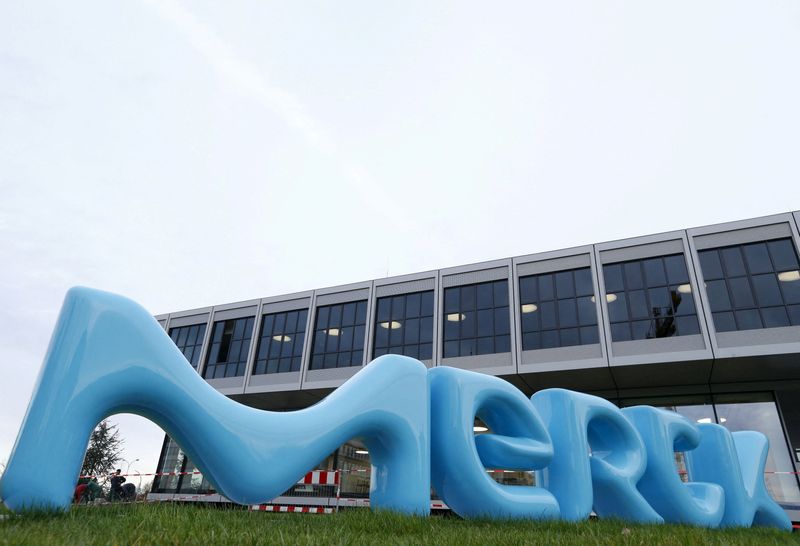By Ludwig Burger
FRANKFURT (Reuters) -Germany's diversified group Merck KGaA has raised the prospect of returning to revenue growth next year, recovering from a slump in demand for its specialty materials to produce biotech drugs and semiconductors.
"We are expecting to leave the transition year 2023 behind, returning to growth in 2024," CEO Belen Garijo told Reuters ahead of the company's capital markets day on Thursday, referring to gains adjusted for currency swings.
Its shares were up 5% at 0735 GMT, recouping this week's losses, with JP Morgan analysts saying the market should be reassured by the outlook.
At the group's key biotech process solutions business, which helps drugmakers run cell cultures and bioreactors, large customers would likely stop drawing on inventories and place orders, "with sales picking up again in the first half of the year", Merck said in a statement.
During the pandemic, makers of drugs and vaccines purchased excess amounts of Merck's supplies such as filters and bioreactors, which were repurposed for other products after the pandemic.
The market for semiconductor materials sold by the company's Electronics division, should "recover incrementally in 2024", Merck added.
"It appears for Electronics the recovery in 2024 could be more muted," JP Morgan analysts said in a note.
The company reaffirmed that sales would be broadly flat this year, at between 20.5 billion euros ($21.6 billion) and 21.9 billion euros, compared with 22.2 billion last year.
The outlook for adjusted core earnings of 5.8 billion to 6.4 billion euros this year, down from 6.85 billion in 2022, was also confirmed.
Higher interest rates have dampened investor appetite for risky biotech drug ventures, compounding a decline in coronavirus-related activities.
That has also hit rival laboratory gear maker Sartorius, French drug ingredients maker EuroAPI and Swiss drug contract manufacturer Lonza

CEO Garijo told Reuters that experimental multiple sclerosis drug evobrutinib could be a "blockbuster", an industry term for annual sales that exceed $1 billion, even after concerns emerged that it may cause liver damage.
($1 = 0.9484 euros)